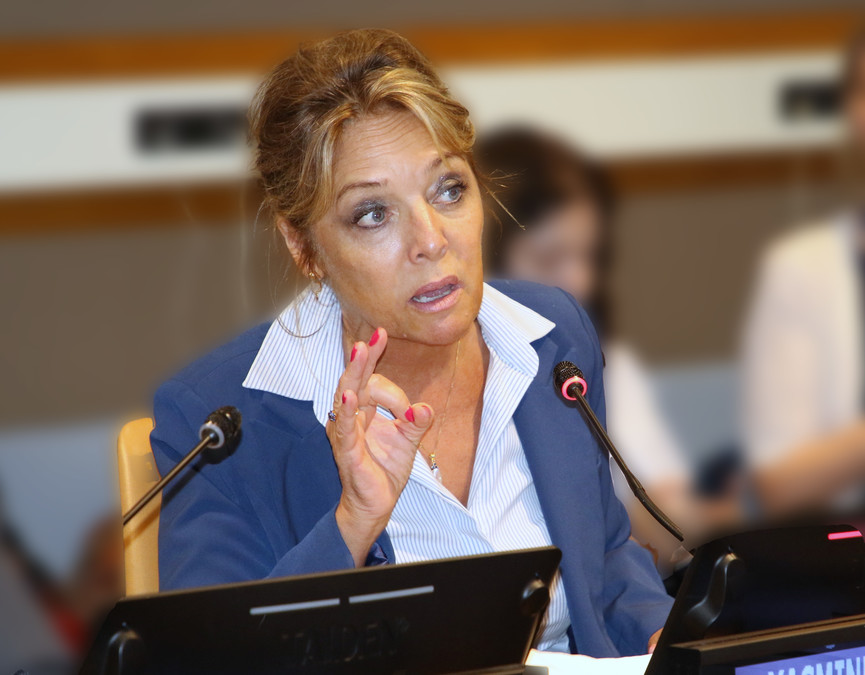The Full Force of Tolerance

International Day of Tolerance Statement by Education Cannot Wait Executive Director Yasmine Sherif
16 November 2023, New York – Despite all our progress in many aspects of human life on earth, we still fall behind on universal ethics, empathy and moral courage – three key components essential to create a world of tolerance. Today, we live in a world of grave injustices, stark inequities and a polarization that threatens our very survival.
More than ever, the notion of “tolerance” calls for serious reflection, constant remembrance and conscious action in our daily effort, or as Martin Luther King Jr. said: “Tolerance is not enough; we must have positive action for freedom.” In this spirit of positive action, “tolerance” is conditioned by our ethics, empathy and courage to not tolerate injustice and inequality. It expects us to treat others as we want to be treated ourselves.
The Declaration of Principles on Tolerance, which was signed by the Member States of UNESCO on 16 November 1995, reads: “Tolerance is respect, acceptance and appreciation of the rich diversity of our world's cultures, our forms of expression and ways of being human. It is fostered by knowledge, openness, communication, and freedom of thought, conscience and belief. Tolerance is harmony in difference. It is not only a moral duty, it is also a political and legal requirement. Tolerance, the virtue that makes peace possible, contributes to the replacement of the culture of war by a culture of peace.”
Nearly three decades later, the full meaning of “tolerance” remains an elusive, almost abstract, imperative across the globe. The magnitude and depth of violence, armed conflicts, persecution, prejudices and closed minds have reached shocking proportions. Religious, ethnic and racially motivated hatred and extremism engulf our globe and every continent. Clearly, it is not enough to be human. The human family at large also has to learn to become humane.
Tensions in – and between – the Global North and the Global South are hitting a fever pitch, causing brutal armed conflicts in the Middle East and Africa, a protracted war in Ukraine, and ongoing violence in Asia and Latin America. Forced displacement has reached record levels since WWII. At the root lies intolerance.
“Education is the most effective means of preventing intolerance. The first step in tolerance education is to teach people what their shared rights and freedoms are, so that they may be respected, and to promote the will to protect those of others,” reads The Declaration of Principles on Tolerance.
In the same vein, “The highest result of education is tolerance,” Helen Keller eloquently put it. Indeed, tolerance comes with education. It starts during early childhood at home, on the playground and at preschool; hence, it successively solidifies throughout our education and continued learning in life.
Sprung from empathy for all of humanity, education in tolerance is a long road that makes the connection between the mind and the heart. Aristotle understood this well when he said: ”Educating the mind without educating the heart is no education at all.”
This is the power of education. The true meaning of “tolerance” must be taught, nurtured, acted upon and defended. Over the years of working in places where armed conflicts and wars dominate the lives of young children and adolescents, I have found that their experience of conflict, violence and displacement opens them up to empathy – the highest form of tolerance. Their resilience makes them humane and opens the door to their greatest potential – provided they receive conducive quality learning. This is the transformative power of education.
Young children and adolescents who have suffered unspeakable horrors of dispossession and conflict are exceptionally capable to learn freedom as opposed to oppression, peace as opposed to war. With a quality education, this is the potential of the 224 million children and adolescents in today’s armed conflicts, climate-induced disasters and forced displacement.
I fully believe that patience is a virtue; however, it is definitely not a virtue in the face of human suffering. In the same way, tolerance, too, is a virtue; yet it also requires us to be intolerant of violations of International Humanitarian Law and universal human rights. Only then will we attain the full force of tolerance and model the empathy that lies at its core.
On the International Day of Tolerance, let us seriously reflect and make the effort to consciously embody the full meaning of tolerance before the millions of school-aged children whose futures depend on us and upon whom we, too, depend.
In the final analysis, educating for tolerance requires role models for the young generation. As parents, teachers, leaders and people from all walks of life, we need to look afar and within. Because tolerance starts with ourselves and how we relate to universal values in practice and in action – just as outlined in the Declaration of Principles on Tolerance.




